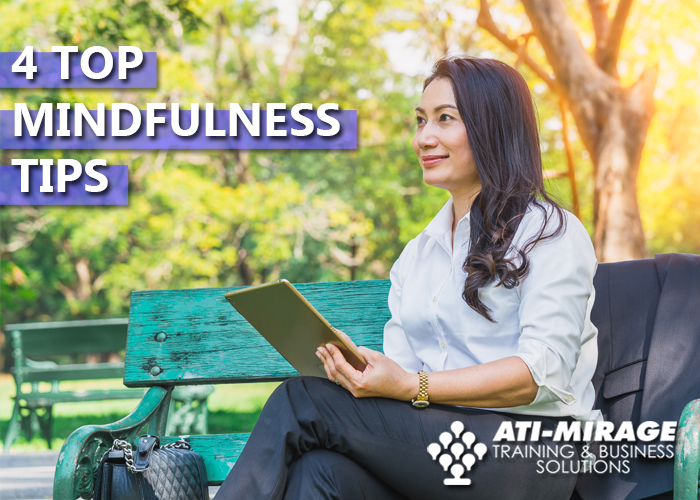If you would like to slow down, create more space to work through big decisions and make plans, then the practice of mindfulness can help you.
Right now, in this moment, pause for a few seconds and focus on your mind. Notice your mind has incredible expansiveness, resources and possibilities—for imagination, creativity, kindness, compassion, insight, focus and wisdom. Appreciate, in this moment, the true powerhouse of energy and drive that is your mind. Breathe.
Michael Singer, author of The Untethered Soul said
“You are not your thoughts, you are the observer of your thoughts”
For some of us, our mind can seem like an untamed animal, full of distraction, busyness, unwelcome thoughts and inner chatter that can make us feel overwhelmed. Sometimes you would like to just shut off your busy mind so you can get some work done or have a moment’s peace. Yet our mind is the one thing we often struggle to shut off. Even so, if you can notice these thoughts, you can learn to let them go.
Just as we exercise our body to stay fit and healthy, we can gently and consistently exercise our mind, with small practices that make a big difference. Through mindfulness, we can train our minds to work better for us.
Here are 4 top ways to practice being more mindful:
- Keep an open mind
Being open minded allows yourself to be curious, attentive, receptive and perceptive. It is often referred to as tapping into our growth mind or conscious mind. Whenever you notice your thoughts falling into unhelpful old familiar patterns, stop and examine, with curiosity and kindness, what is going on. Notice and accept the physical sensations in your body, the emotions you are feeling and the stories your mind is telling you. Remember these are stories, and not necessarily truth. - Remember, thoughts are not facts
Thoughts manifest from our programmed mind – based on our values, beliefs, perceptions, experiences and more. A way to observe, and not engage in your stories, is to say to yourself “I’m having the thought… – this is difficult” (for example). This affirms to yourself, you are not your thoughts, your thoughts are just…thoughts. Remember, in our mind we can make generalisations, assumptions, have opinions and these aren’t facts. Through mindfulness and observing our thoughts, you can question the thoughts. Ask yourself, with curiousity, “How can I get a great result with making this easier?” (for example) - Learn to respond, rather than react
When you take time to examine your thoughts, you will generally see your own story forming. It is important to become the reader of the story instead of the protagonist. You may notice your heartbeat, sweaty palms, and tightened shoulders or jaw. Responding in this state may not be effective for you. When you let go by simply relaxing the tension, these feelings and/or sensations will also release. From this new state, it is easier and more effective to respond. Mindfulness tends to increase your empathy, your ability to put yourself in someone’s shoes with greater understanding. It enhances your connection with other people and supports you as you build work relationships. It enables you to build better boundaries with more effective communication. - Build healthy habits
Healthy habits stick best when done consistently and in small do-able steps. It is an ongoing practice of self-care. To benefit from mindfulness it helps to have both training in mindfulness and informal practices that incorporate mindfulness into your everyday. Mindfulness training involves learning a simple mindfulness meditation such as following the breath and practicing it on a regular, preferably daily, schedule. Informal practice can take place any second of the day by focusing the mind on whatever is happening in the present moment taking a deep breath and focusing on what is in front of you, and how you are being at that moment in time.The team at ATI-Mirage are training experts and can assist you with mindful practices to build your resilience, call us today to book your place on our next Mindfulness@Work course.Blog written by Wendy Wilson, ATI-Mirage’s Lead Consultant PD and Wellness


